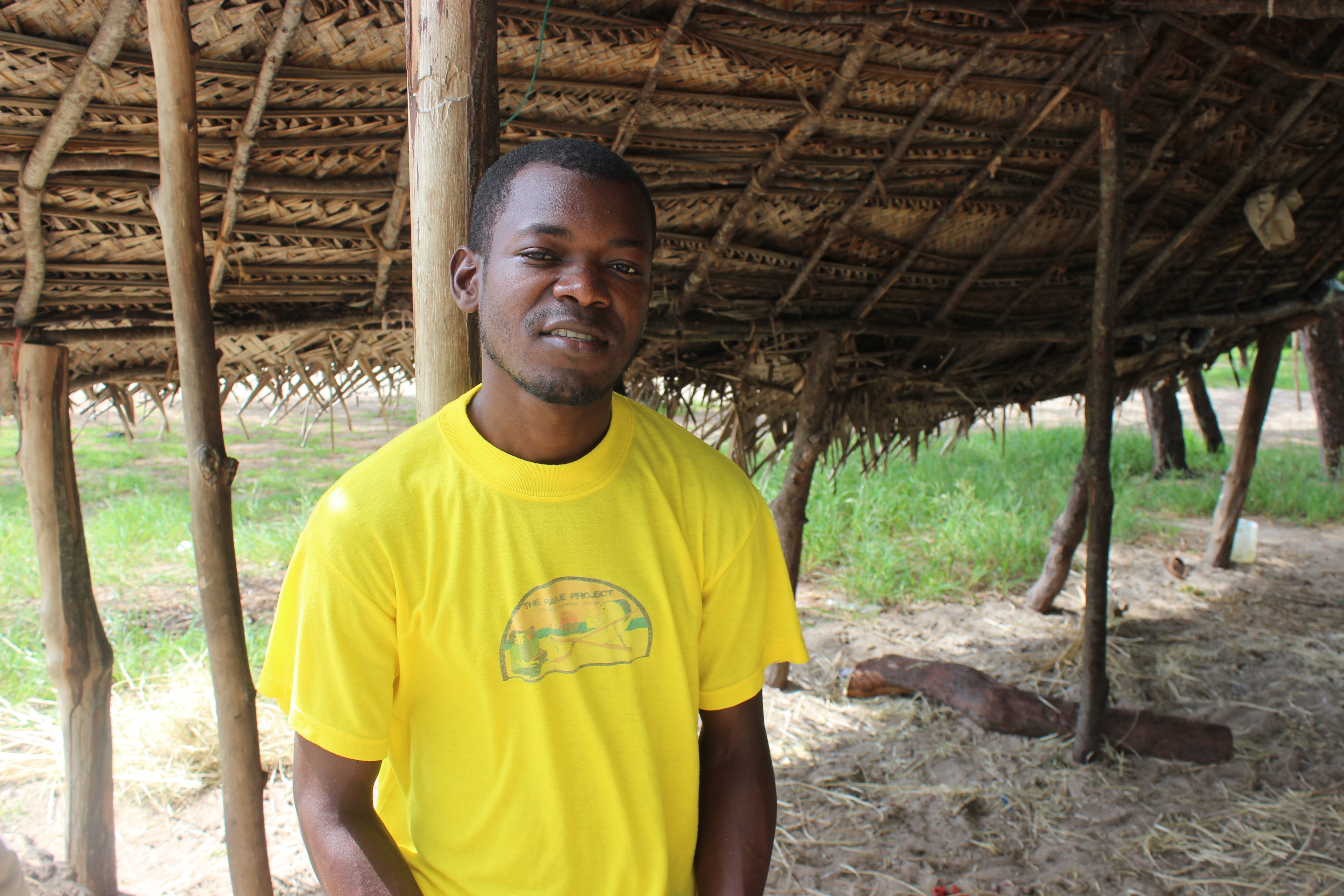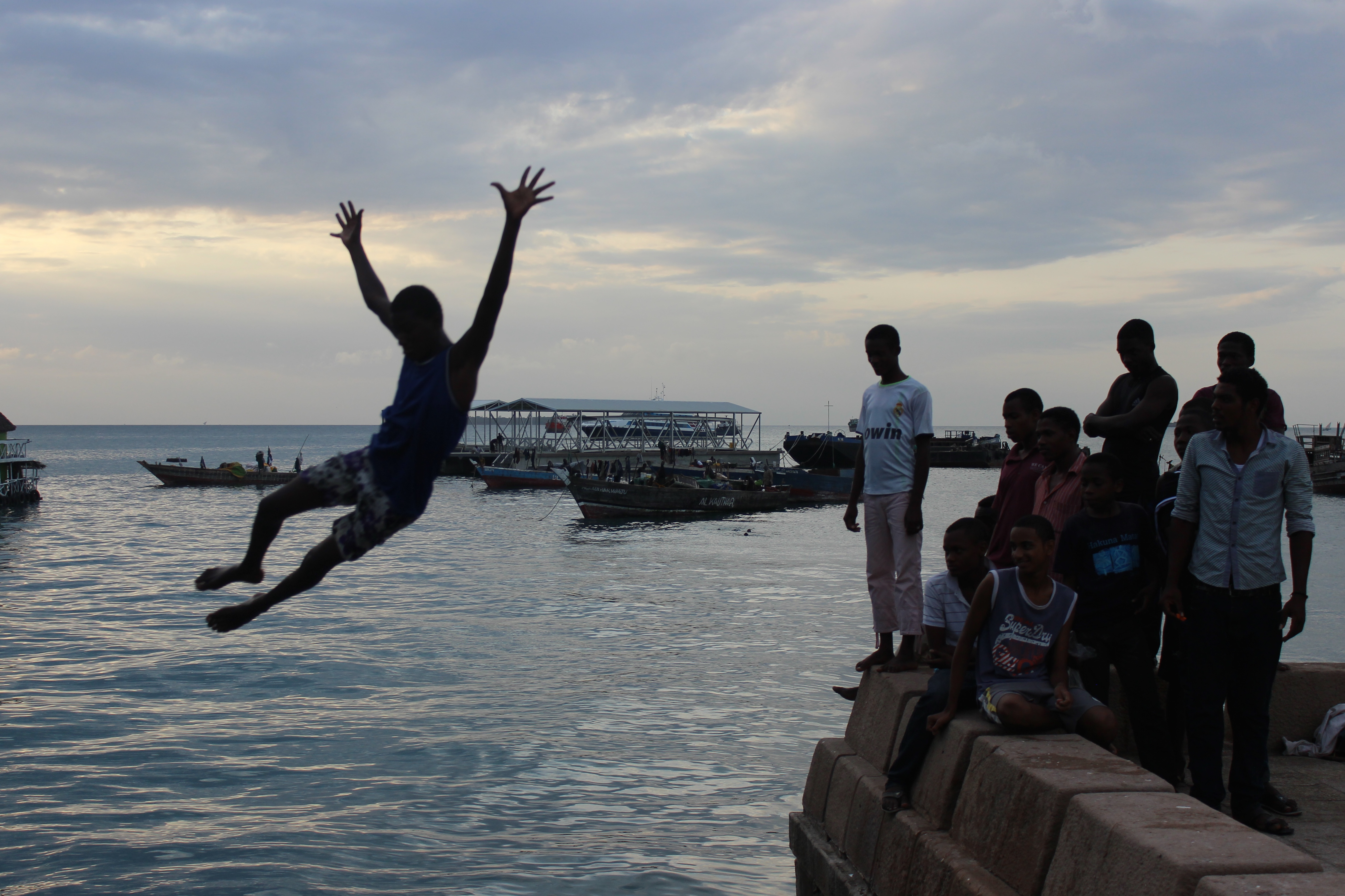
On the islands of Zanzibar, it's common for a boy to learn to swim before reaching his teen years without any formal lessons. For Haji Ali Haji it was no different.
"I went to the beach to play in water, but I wasn't knowing how to swim," says Haji. "I was following my friends because they already knew how to swim and … [they] taught me how to swim."
Haji was born and raised in the tourist destination of Nungwi, a town on the northern tip of Zanzibar's main island Unguja. He says he was swimming by the age of 10 or 11.
But the swimming that Haji was doing as a child wasn't the kind of technical swimming he has been teaching to children in Nungwi through the Panje Project, an NGO focused on educating and training youth. It's a skill they wouldn't get otherwise since, just as it was for Haji 15 years ago, learning to swim is not something ever discussed at home.
"Swimming, for the [kids'] first years in Nungwi, is just playing. If kids want to swim, they can go... " Haji says. "It is the kid's own choice."
Haji had been a student in Panje Project's leadership training program. When representatives from UK-based charity Royal National Lifeboat Institution (RNLI) came to start a swim survival program with Panje in 2013, Haji first applied to be assistant coordinator and then to be certified as a swim instructor.
Now the 26-year-old is one of Panje's two master trainers: a teacher of swim teachers. He is also Panje co-founder Bakhtim Marshed's right-hand man for just about everything. He handles the registration of each child who comes through the program and hands out swim uniforms before trainings start. He practically lives at the Panje home base—it was unusual when he missed a Friday to attend his brother's wedding in the town of Makunduchi.
Though a lot of his time is spent on program coordination, there are still plenty of days when he is in the water with the kids. He took a liking to a couple of students in particular: two teenage girls. It's easier for female students to stand out since participation of girls in the program is harder to come by.
"It's about our own culture," says Haji. "The coming of tourism was a new culture here. They thought if girls come to the beach they will imitate the tourist culture."
This included the wearing of bathing suits with little coverage by foreign visitors, an act viewed as immodest within the religious culture of Haji's community. So when he was younger, Haji says, girls were not allowed to go to the beach and most did not learn to swim.
Now, the trend is changing a bit. But it was only after long discussions with community leaders and school teachers in Nungwi, and assurance that their bodies and hair would be covered by a specially-designed swim uniform, that girls were encouraged to sign up for the training sessions.
"It was wonderful for us to see them swimming properly," says Haji.
On one Saturday when Panje started a session for another batch of 40 kids in Nungwi, the pair of girls that Haji is talking about helped collect permission slips and register each child. Even after Haji and Abas Ninga, the other master trainer, finished assessing every child's swimming ability, the girls stayed in the water for a while longer.
Haji is trying to get the two girls positions as swim instructors, but has to wait until they've completed their schooling. With female instructors on the team, other girls in Nungwi may register and Panje may find other communities agree to opening the program in their villages.
"The more kids that get this earlier, the more it will grow in their minds," says Haji.
Which is all Haji really cares about—for everyone in northern Unguja to become as at home in the water as he is.




